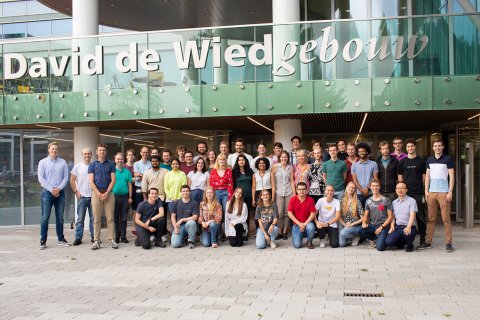Welcome!
The synthesis of chemical building blocks and new organic compounds with interesting physical, biological, or pharmaceutical properties remains as a challenge. Recent and ongoing developments specifically ask for ‘clean’ and efficient synthesis protocols, preferably based on renewable resources, to be developed for current and future applications. Catalysis plays an important role in the development of such ‘clean’ and sustainable synthetic protocols.
Directly to research pages of:
Contact
The Organic Chemistry and Catalysis Group
David de Wied building
Universiteitsweg 99
3584 CG Utrecht
The Netherlands
Tel.:+31 30 2533120
Email: science.secr.orgchem@uu.nl

The OCC research group is actively involved with various aspects of catalysis. New organometallic and coordination complexes are designed and synthesized in search of new catalytic properties in, e.g., oxidation catalysis or in the catalytic conversion of biomass. In the design of new catalysts and new catalytic procedures the active sites of metallo-enzymes play an important inspirational role. In addition, new concepts in ligand design are pursued, e.g. through the development of cooperative and dinucleating ligands, and the design of ligands based on less traditional donor atoms like Si. Furthermore, research is done at the interface of organic and inorganic chemistry, that is on the design of homogeneous as well as heterogeneous or hybrid catalyst systems that will be used in catalytic organic syntheses and the chemical transformation of renewable feedstocks, such as biomass, CO2 and recycle or waste streams.
The OCC group is part of the Institute for Sustainable and Circular Chemistry at Utrecht University and participates in the Netherlands Institute for Catalysis Research (NIOK) and the Advanced Research Center CBBC. The group is involved in a number of national and European research programs (see research pages), and coordinates the European training network NoNoMeCat on Non-Noble Metal Catalysis. Details on the different research lines of the group are found on the research pages shown below.







